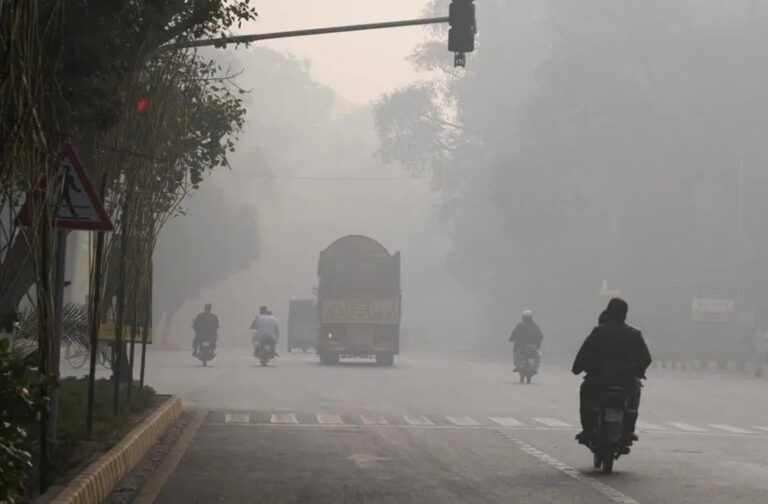Lahore: In response to severe air pollution, the Punjab province of Pakistan has established a “smog war room” to combat the environmental crisis.
The move comes as Lahore, the provincial capital, was ranked as the world’s most polluted city, with a pollution index score of 1165, according to live data from Swiss-based IQAir.
The Indian capital, New Delhi, followed with a much lower score of 299. The war room will meet daily to review air quality and weather forecasts while overseeing the efforts of field officers. The committee will monitor performance and actions, from controlling farm waste burning to managing traffic.
The initiative brings together staff from eight government departments, with one individual tasked with coordinating all activities aimed at curbing pollution. Twice-daily sessions will evaluate the data and provide stakeholders with updates on pollution control measures, including issuing advisories to the public.
Today’s AQI crossed 1100 in the morning, posing a severe health risk.
We are not shutting down schools entirely, but instead, switching to online classes due to the heavy smog, similar to what was done during COVID. pic.twitter.com/Ka6VxUEg0r
— Marriyum Aurangzeb (@Marriyum_A) November 6, 2024
While pollution index on Wednesday was high, it was still lower than last week’s alarming score of 1900, which exceeded recommended levels by more than 120 times. The hazardous level prompted the closure of primary schools and work-from-home orders.
Punjab’s senior minister, Marriyum Aurangzeb, attributed the toxic air to pollution drifting from neighbouring India, just 25 km (16 miles) away. She stated that Punjab’s government would request Pakistan’s Foreign Office to discuss the issue with the Indian Foreign Ministry. The northern part of India is also experiencing severe pollution, exacerbating the regional crisis.
South Asia is routinely enveloped in heavy pollution during the winter months when cold air traps emissions, dust, and smoke from farm fires.
The Environment Minister of New Delhi, which has topped IQAir’s global pollution rankings for four consecutive years, announced that officials are exploring the use of artificial rain as a potential solution to mitigate pollution this year.



